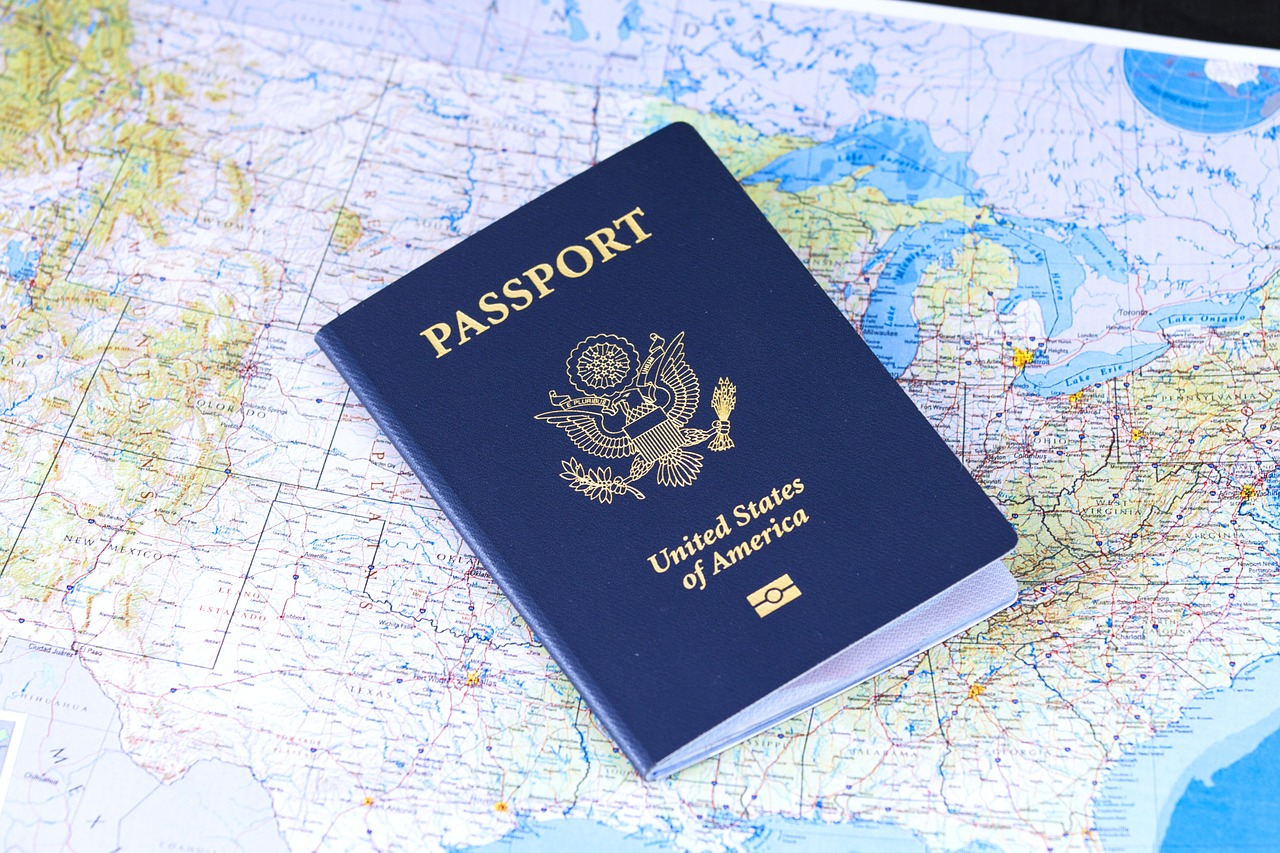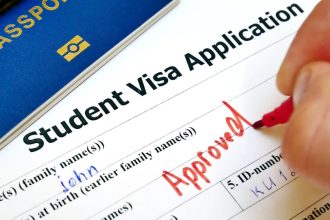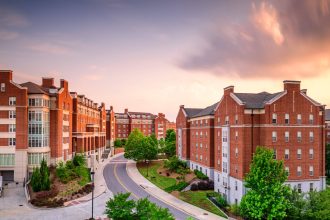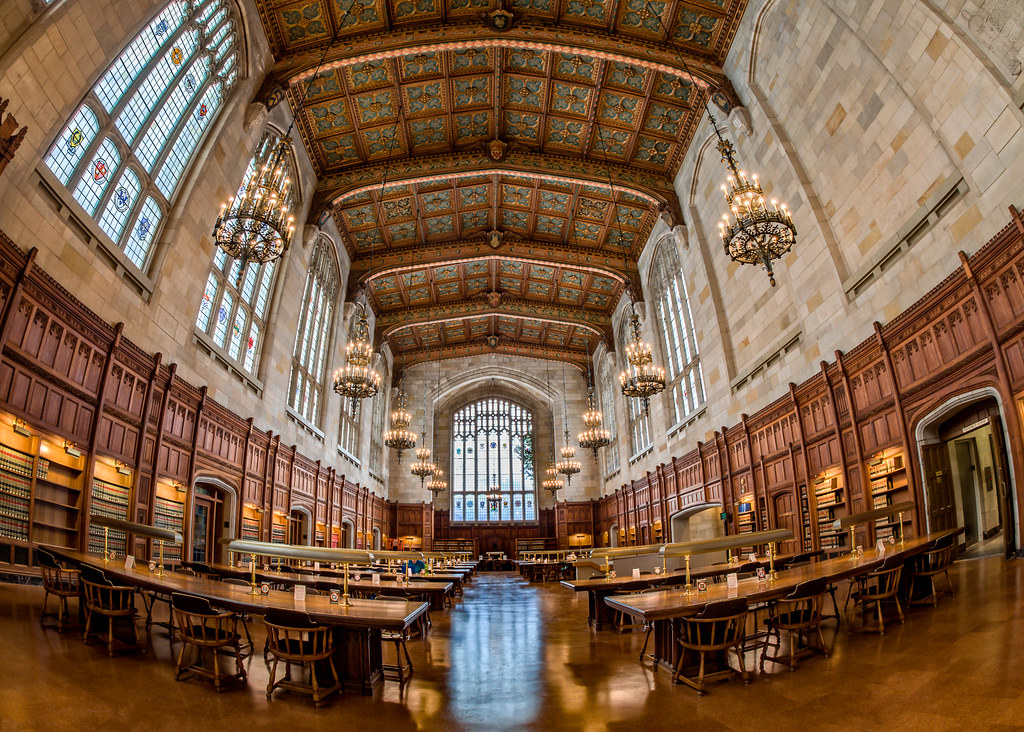Once you have received offers from your dream universities in the United States, the next most important thing to do is your F-1 student visa. The F-1 student visa interview is a crucial part of applying for a U.S. student visa. As an international student who will study in the U.S., you must fully demonstrate your study plan, financial ability, and willingness to return to your home country during the interview to gain approval from the visa officer. However, many students feel nervous when faced with a rigorous interview process and a diverse set of questions. To help you better prepare for this important interview, we have put together a detailed guide of F-1 student visa interview questions. This guide not only covers common questions asked during the interview but also provides practical advice and tips on how to answer them, to help you respond confidently to the interviewer’s scrutiny.
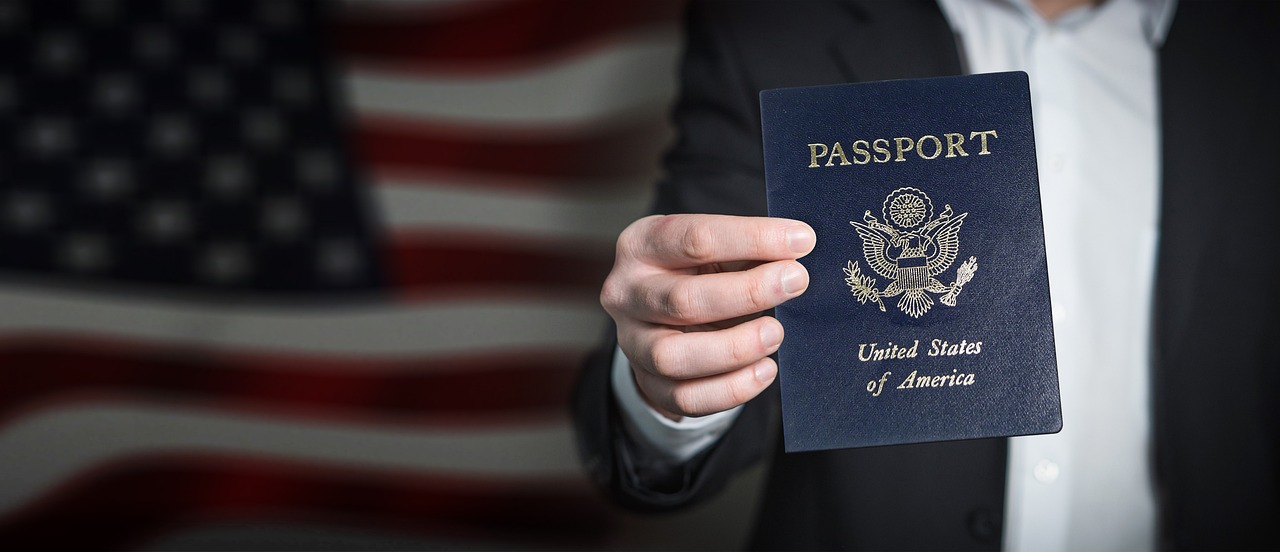
What is F-1 Student Visa?
The F-1 visa is a nonimmigrant visa issued exclusively to international students who come to the United States for academic or language study. Students holding an F-1 visa must be enrolled full-time in an accredited school, including universities, colleges, secondary schools, elementary schools (private schools only), and other academic institutions in the U.S. The F-1 visa as one of the common types of student visas in the USA requires that the student be primarily engaged in academic study. They can not engage in full-time employment during his or her studies. In addition, students must leave the United States within a specified period after completing their studies. Unless there is an extension or change of lawful status is granted. The F-1 visa is the primary visa type for international students wishing to further their education in the United States.
F-1 Student Visa Qualification
To be eligible for an F-1 student visa, the applicants must meet the following eligibility requirements:
- Letter of Acceptance:
The applicants must have been admitted to an accredited U.S. school, university, college, or other academic institution and have received a Form I-20 from that school.
- Full-time Study:
Students must be enrolled in a full-time course of study, which means meeting the minimum credit requirements set by the school each semester.
- Adequate Financial Support:
Applicants will need to demonstrate that they have sufficient funds to pay for tuition, living expenses, and other related costs while in the United States. Typically, this will require proof of bank deposits, scholarships, or other documentation of financial support.
- English Proficiency:
Applicants should have sufficient English proficiency to complete the program of study. This usually needs to be proved by an English proficiency test such as TOEFL or IELTS.
- Non-Immigrant Intent:
Applicants must demonstrate an intent to return to their home country upon completion of their studies. This can be demonstrated through family ties, property, work commitments, etc. to prove their binding in their home country.
- Good Academic Record:
Students should have a good academic record and meet the admission requirements of the school they are applying to.
Documents For F-1 Student Visa Interview
Documents required for the F-1 student visa interview include:
- Interview Appointment Confirmation Page: When you make an appointment for an interview, you will receive an interview appointment confirmation page with the date, time and location of the interview.
- Printout of DS-160 confirmation page
- One 2-inch x 2-inch (5.1 cm x 5.1 cm) photograph was taken within the last six months
- All of your passports
- Form I-20 from your U.S. school or program
- Letter of Acceptance (printed)
- Transcripts (college/high school grades, GRE scores, GMAT, SAT scores)
- Graduation Certificate
- Curriculum vitae
- Research/study program in the U.S. and related details
- Proof that you will return to your home country as scheduled after completing your studies in the U.S. Proof of family, financial, etc. (e.g., real estate license, household register, etc.)
- Proof of financial support
- Proof of relationship with financial supporter
- Proof of parents’ income, proof of employment, pay stubs, etc.
Common Types of F-1 Visa Interview Questions
When you are preparing for an F-1 student visa interview questions. It is crucial to understand the types of interview questions that are commonly asked. These interview questions for an F-1 visa are designed to assess the applicant’s multifaceted Information. The visa officer will use a diverse set of questions to understand your background and motivation to ensure that you meet the visa requirements. Below are some categories of F-1 student visa interview questions that visa officers often ask to help you be well prepared. Familiarizing yourself with these types of F-1 visa interview questions ahead of time will help you feel more confident and comfortable during the interview.
- About U.S. schools and your study background
- Your Financial ability
- Your Future Plans

F-1 Visa Interview Questions Classify
1. F-1 Visa Interview Questions about U.S. Schools and Study Background
Q1: What is the name of the college or university you are planning to go to?
Tips: When answering this question, make sure you state the name of the school you will be attending accurately, and you can give some background information about the school to show that you know it deeply.
Q2: Why did you choose to go to this specific university or college?
Tips: You can illustrate the specific reasons you chose this college, demonstrating your in-depth knowledge of the school and program and how they fit your academic and career goals.
Q3: How do you know this school?
Tips: You can tell the officers about the sources through which you learned about the school and how well you know it.
Q4: What is your purpose for studying in the United States?
Tips: Emphasize your purpose and motivation for choosing to study in the U.S., as well as your goals and plans for studying in the U.S.
Q5: Which city is this school located in? How much do you know about this city?
Tips: For the answer about the city where the school is located, you can tell the name of the city where the school is located. Then, you need to describe how much you know about the city. You can talk about what you know about the city’s culture, climate, and transportation system. The point is to demonstrate your basic knowledge of the city and to express your expectations of studying and living in the city.
Q6: How many universities did you apply to and why?
Tips: You can tell the number of colleges you applied to and then explain why you chose these institutions. You can talk about the majors or fields you are interested in and each college’s reputation and resources in that area. Emphasize that you hope to increase your chances of admission by applying to these numbers of schools and that you think this will give you a better understanding of the differences between schools and help you make your final choice.
Q7: Did you get accepted by all of them? What are the names of the universities you got accepted to?
Tips: You can answer directly whether or not you have been accepted to all the colleges to which you applied and list the names of the colleges to which you have been accepted. This can be done in the order of acceptance or in the order of the colleges you are most interested in.
Other Related Interview Questions for F-1 Visa:
- What is your high school/undergraduate academic GPA or Percentage?
- Where is the school, which degree did you study or which degree are you planning on studying?
- What are the reasons for you coming to study in the United States?
- How long are you planning to stay in the United States?
- Have you been to the US before?
- Why do you want to do a Master’s or Ph.D. degree?
- Why don’t you want to study this major in your home country?
- Have you made any arrangements for housing/accommodation in the United States?
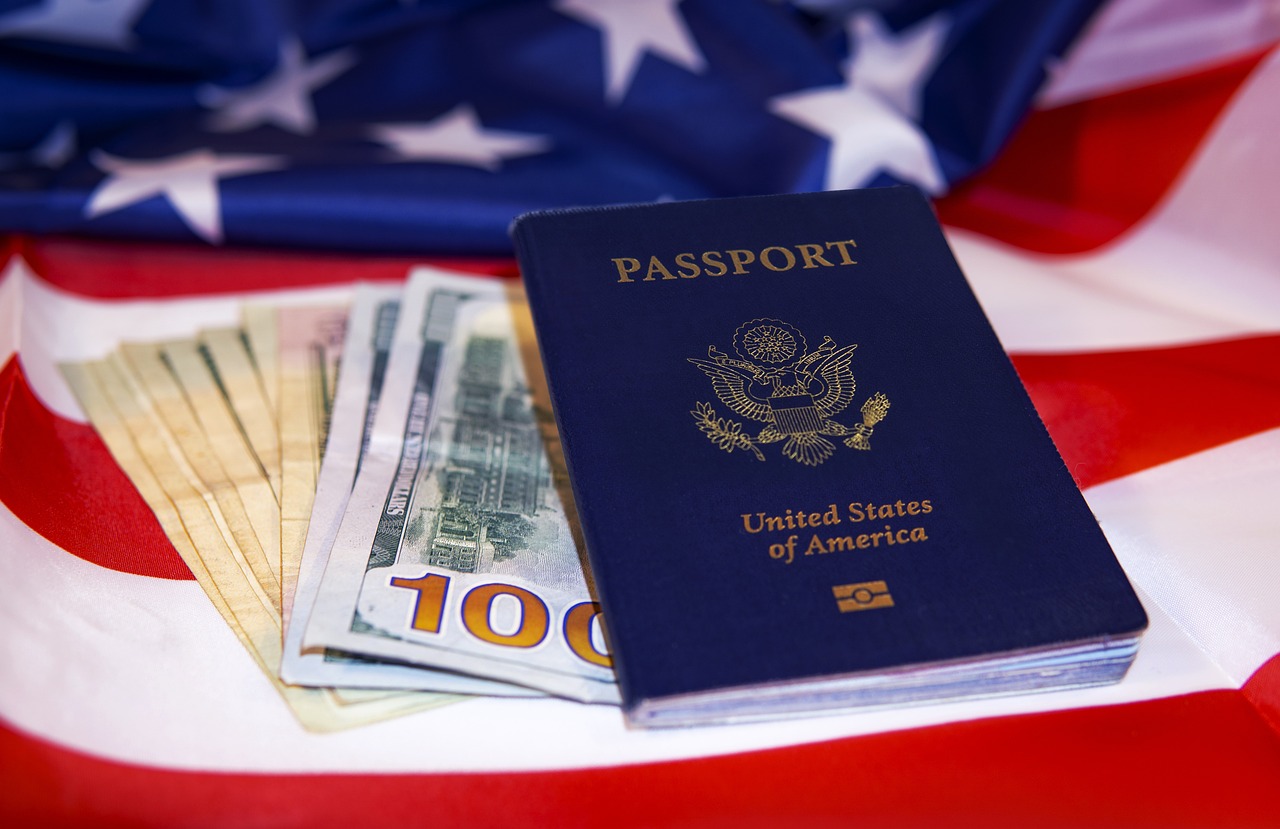
2. F-1 Visa Interview Questions about Your Financial Ability
Q1: Who is paying for your education?
Tips: You can tell the visa officer directly about who funded your education, such as your family members. Then describe the expectations or attitudes of your parents, expressing their support for your education.
Q2: Tell us more about your father’s/mother’s job and income and how long they have been working for the company.
Tips: Begin with a short description of your parents’ occupation and income, including the type of work they do and the industry of the company they work for. Next mention the length of time they have worked for the company, demonstrating their job stability and experience.
Q3: What is your sponsor’s annual income?
Tips: First, state who your sponsor is. Then, tell the officer about the sponsor’s annual income range, which could be a ballpark figure or an income bracket.
Q4: How much does your university cost for a year?
Tips: Answer this question by first stating the tuition and related fees for a year at the university of your choice. You can explain how you are paying for these expenses, whether it is through family support, scholarships or other means.
Q5: Does your sponsor pay for all of it or did you also get a loan?
Tips: Tell the officer about who your sponsor is and then state whether or not they have paid the full cost of tuition and related fees.
Q6: Are any of them living in the United States or do you have any other relatives who live in the United States?
Tips: First identify if any other relatives reside in the United States. Then describe the relationship of these relatives, e.g., siblings, aunts and uncles, aunts, etc., and indicate where they live in the United States. After that, you can explain whether these relatives will have any influence on your study in the U.S., such as providing accommodation, helping to solve problems, etc.
Other Related USA Interview Questions for F-1 Visa
- Do you have any siblings?
- In which country and in which city do your parents live?
- As we can see you have brothers and sisters, will your parents be able to afford your education abroad in the United States?
- Do you have any relatives studying at the same university you are planning to go to?

F-1 Visa Interview Questions about Your Future Plans
Q1: Why do you like the United States as a country?
Tips: You can express your love and admiration for the United States, what special things attract you or what you like about the United States because of watching a certain movie. Then you can mention the advantages of the U.S. as a multicultural and liberal democratic country, such as its rich educational resources, innovative technological development, etc. Finally, you can briefly explain your purpose and expectations in choosing to study in the U.S. and your desire for well-rounded academic and personal development in such a country.
Q2: What are your expectations after having completed your studies and returning to your country?
Tips: Begin by stating your expectations and goals after completing your studies. Then mention how you plan to contribute to the development of your home country by applying the knowledge and experience you have gained upon your return. Finally, you can emphasize your expectations and plans for your career development after returning to your home country.
Q3: What are your plans after graduation?
Tips: You can tell the interviewer about your plans and goals after graduation. Then mention your plans for future career development, including finding a job, continuing your education, or starting a business.
Q4: What are your career goals after your studies?
Tips: Answer with your career goals after completing your studies. Then mention your aspirations for your future career, including the industry or field you would like to pursue and the career position or goal you would like to achieve.
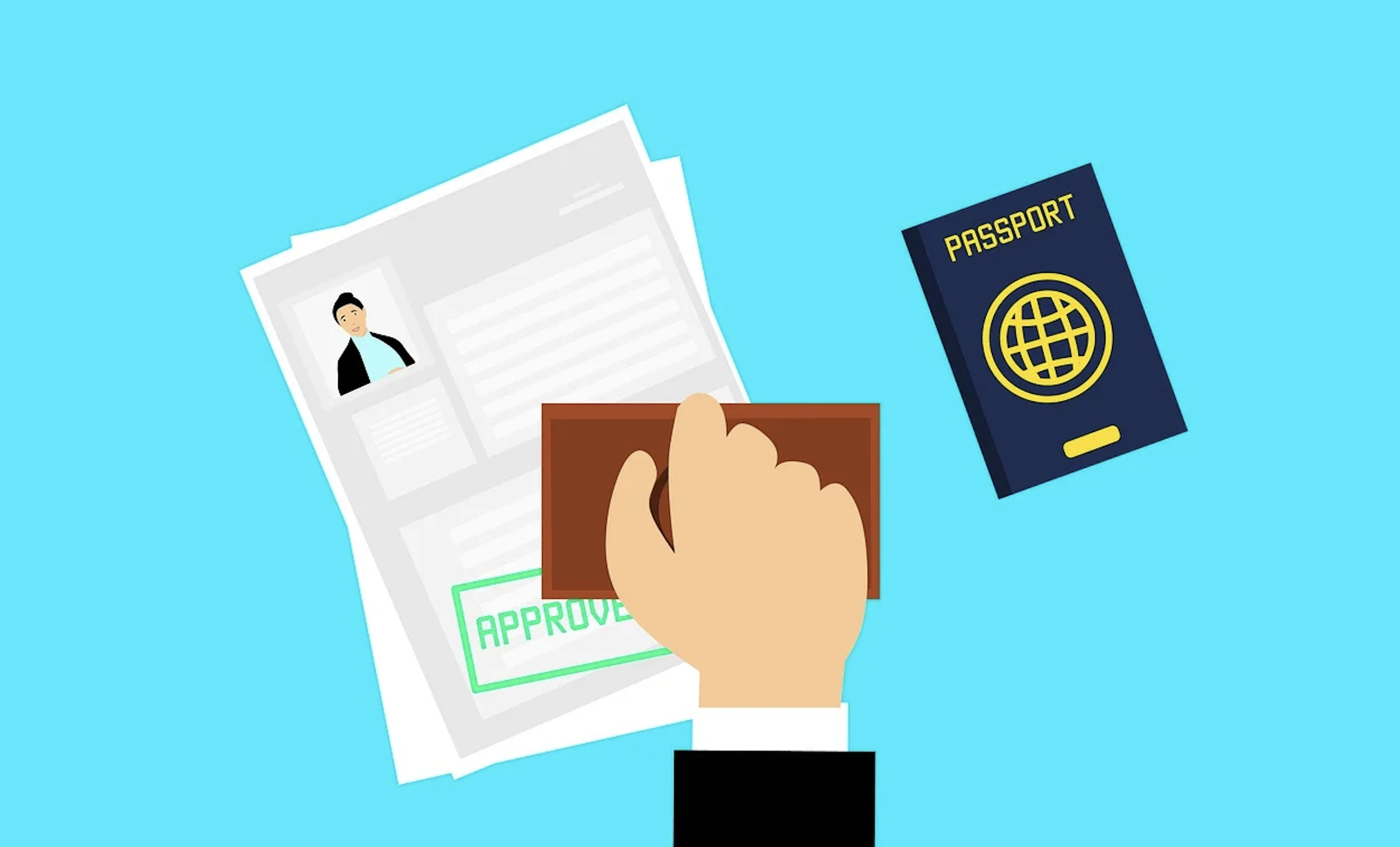
Tips for Prepare F-1 Visa Interview Questions
Some tips for preparing for questions about F-1 visa interviews include:
- Familiarize yourself with your personal information:
Make sure you familiarize yourself with your all background information, including your academic experience, family situation, and financial situation.
- Understand the visa requirements:
Read and understand the F-1 visa application requirements and conditions carefully and make sure that all application materials are prepared according to the requirements.
- Practice Frequently Asked Questions:
Practice F-1 student visa interview questions, such as why you chose the school, what your academic plan is, and your source of funding.
- Prepare Supporting Documents:
Have all the documents that support your application ready for the visa officer to review, including acceptance letters, financial certificates, and academic transcripts.
- Remain confident and courteous:
Remain confident during the interview process, answering the US F-1 visa interview questions positively and communicating effectively with the visa officer.
FAQ about F-1 Visa Interview Questions
The key to passing your F1 visa interview is to be well prepared. Familiarize yourself with your personal background, school, visa requirements and frequently asked questions, prepare supporting documents, and remain confident. Communicate effectively with the visa officer, answer questions honestly, and demonstrate study plans and intentions to return to your home country.
The F1 visa interview can be challenging, but it is usually successful with adequate preparation. The visa officer will ask questions about your personal background, academic plans, and financial situation to ensure that you meet the visa requirements and have the intent to return to your home country. Understanding the interview process and having supporting documents ready can help. Honesty and confidence are also key to a successful interview.
During the F1 visa interview, avoid mentioning the following: negative emotions, inaccurate information, plans that do not match visa requirements, overly personal information, politically sensitive topics, unverified sources of funds, and uncertain plans to return to your home country. Be honest and avoid hesitation or ambiguity when answering questions.
Possible reasons for an F-1 visa interview rejection include lack of financial ability, lack of intent to return to the United States, providing false information, failure to meet visa requirements, poor performance in the interview, inability to provide adequate supporting documentation, or the visa officer questioning the applicant’s academic program.
Top 10 Business Schools in the USA: Join in the Top Class
Welcome to a comprehensive exploration of excellence in business education! In the…
Everything You Need to Know About Student Visa USA
Welcome to our comprehensive guide on obtaining a Student Visa USA. Navigating…
What are the Some Popular Student Housing in USA?
In the United States, finding suitable housing is a pivotal aspect of…




